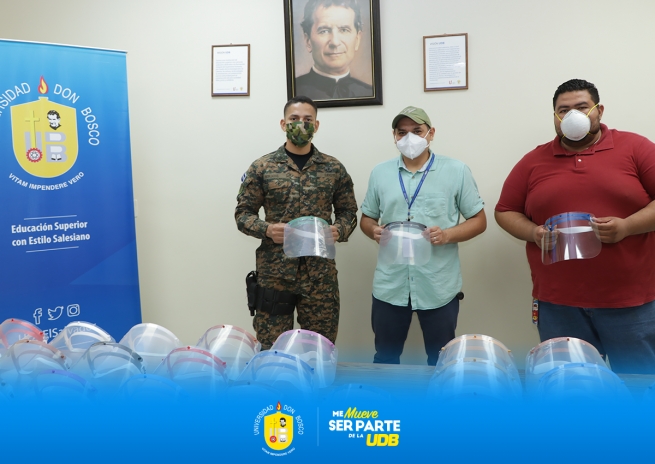This effort has led to the production and donation of 3D-printed protective masks. The latter were produced at UDB and were created with a design suitable for face protection.
It is worth remembering that, again as part of the project, the donation by the American Embassy of two 3D-printers was also envisaged, in addition to those already available in the Scientific Room, thus strengthening the UDB's technological resources.
The materials with which the masks were printed are PET and PETG, plastic filaments used mainly for 3D-printing thanks to their versatility and resistance. Approximately 350 masks can be produced per week, considering the final manufacturing process which includes cleaning, sanding, drilling and positioning of the PET plastic, which takes a couple of days.
In recent days, 100 masks were donated to the Rosales National Hospital, 100 to the Military Hospital, more than 200 to the National General Hospital of Pneumology and Family Medicine "Dr. José Antonio Saldaña", and 75 to the Secretary of Innovation of El Salvador; finally, an average of 1,200 masks are expected to be delivered as part of the project to various hospitals across the country.
According to Raúl Arriaza, a member of a group of professionals and doctors who are promoting a campaign to collect protective material for the front-line staff of Rosales hospital, masks "are highly necessary in the hospital system; in addition to protecting the mucous membranes of the face, they allow the person to receive less biological load," he said.
The director of the Energy Research Institute of the UDB, Carlos Pacas, acknowledged the invaluable contribution this cooperation provides to the Salvadoran population. "We believe it is a project that benefits people, especially medical personnel," he said. "It also shows that the work we do with our partners allows the creation of projects in the service of society," he added.
According to David Cerritos, professor at the Energy Research Institute, "participating in this project has been a very rewarding experience," which allows you to "appreciate the joy of the people who receive the donation," he said.


